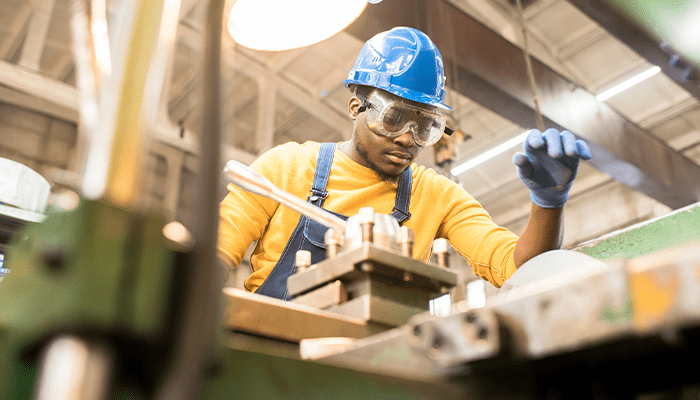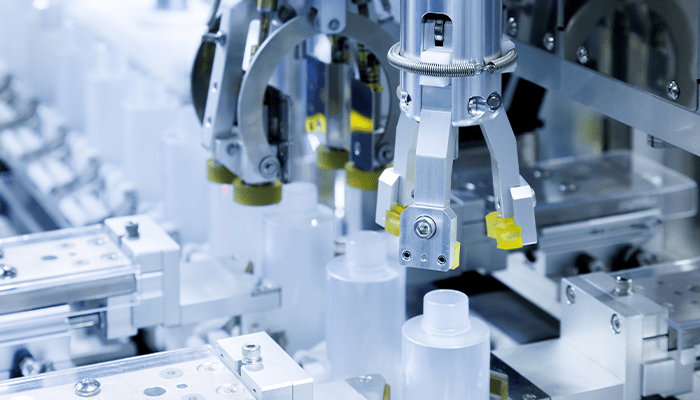
Data Analytics and AI in Manufacturing
The manufacturing industry continues to evolve and transform rapidly. The transformation and growth have been referred to as Industry 4.0 or the Fourth Industrial Revolution. With this transformation, manufacturers are moving towards a fully integrated manufacturing environment called a connected factory, as part of the Industry 4.0 transformation. Here are some ways data and AI are and will continue to be used in manufacturing in the future:
- Predictive Maintenance: The connected factory provides a method for collecting information about equipment operation. Data analytics can predict when machines or equipment are likely to fail, allowing manufacturers to perform maintenance before a breakdown occurs, reducing downtime and costs.
- Quality Control: Computer vision systems use AI technology to inspect products for defects accurately. These systems can "learn" what is considered a defect ensuring defects are captured and do not "escape" to the next process or the customer. The need for manual inspection is greatly reduced.
- Supply Chain Optimization: Data analytics and AI technology can better predict demand, manage inventory levels, and optimize logistics routes, leading to cost savings and improved efficiency.
- Process Optimization: Part of most manufacturers' continuous improvement methods is lean manufacturing methods combined with machine learning algorithms that can analyze data from manufacturing processes to identify inefficiencies and recommend process improvements, leading to higher productivity and reduced waste. Waste reduction is the top goal of lean methods, which helps reduce costs and improve lead times.
- Human-Machine Collaboration: AI-powered robots and co-bots (collaborative robots) can work alongside human workers, taking on repetitive or dangerous tasks and enhancing overall productivity. The use of this technology can greatly reduce safety concerns in areas that may be regarded as unsafe.
- Digital Twins: Manufacturers can create digital replicas of physical products, processes, or systems (known as digital twins) that can be used for simulations, testing, and predictive analysis to improve product development and production efficiency.
- Cybersecurity: As manufacturing becomes more connected through the Internet of Things (IoT), AI can play a critical role in identifying and mitigating cybersecurity threats.
- Worker Safety: AI-driven sensors and analytics can enhance worker safety by identifying potential hazards and providing real-time alerts or interventions.
- Sustainability: AI and data analytics can help manufacturers reduce their environmental footprint by optimizing energy and resource efficiency processes.
As Industry 4.0 continues to transform manufacturing, the integration of AI and data analytics will continue to advance, leading to more autonomous and data-driven factories. Manufacturers harnessing AI and data power will likely enjoy increased competitiveness, improved product quality, reduced costs, and greater adaptability to changing market conditions. However, addressing ethical, privacy, and cybersecurity concerns is essential as these technologies become more integrated into manufacturing processes. Contact AssuredPartners Manufacturing for more insights.
Featured News & Insights

The manufacturing industry is changing fast. With record-breaking investments in new facilities, cutting-edge technology, and a push for smarter, more sustainable operations, there’s a lot to be...

Manufacturing is a cornerstone of the global economy, encompassing industries that transform raw materials into finished goods. From automotive and aerospace to electronics and consumer products, the...

A recent Forbes story on key topics for manufacturers going into 2025 mentioned several, but the overall theme was the advancement of AI technologies in the manufacturing industry. Following is a...